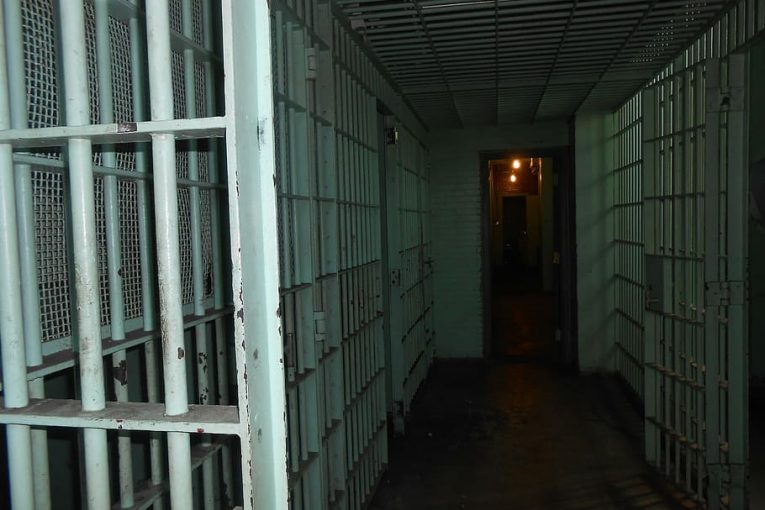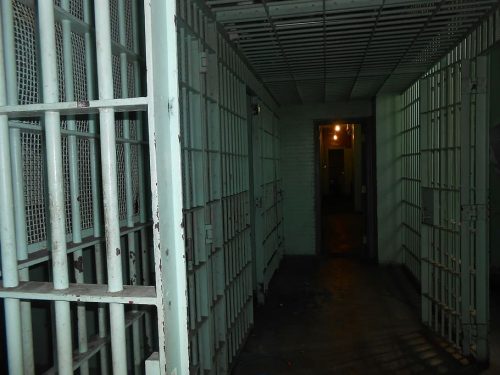

By Isabella Walker and Citlalli Florez
NEWARK, NJ – The ACLU of New Jersey—which has argued State v. Comer to “ensure that no child is forced to spend their entire life in prison” which led to nearly 100 youths to petition for early release—said last week New Jersey prisons still have one of the highest rates of racial disparity in the nation.
According to The Sentencing Project, New Jersey is one of 12 states in which more than half the prison population is Black. It is also one of seven states which maintains a Black/White disparity larger than nine to one.
“(A)t its core, New Jersey’s carceral system remains rife with injustice. The state continues to incarcerate far too many people and has the highest rate of racial disparity in the entire nation, making decarceration fundamental to racial justice here, and beyond,” said the ACLU.
“Comprehensive decarcerative progress means more than releasing incarcerated people at the largest scales—it must encompass so much more, including ensuring that previously incarcerated people are not subjected to excessive supervision, invasive surveillance, or overbearing parole and probation programs,” noted the civil rights group.
The ACLU added, “We must not allow those who profit from keeping people in prison to drive policies that continue to harm families, communities, and incarcerated people. Inaction will cost lives, tear families apart, undermine public health, and hold communities back socially and economically.
“Critics often claim that decarcerative policies would harm public safety—but data show that New Jersey’s efforts to reduce its incarcerated population did not have any meaningful effect on crime. We must address root causes and not be distracted by red herrings.”
The ACLU argues decarceration will not harm public safety, however, this is not true, explaining New Jersey’s efforts to reduce the incarcerated population—cut in half since 2011—did not have much of an effect on crime.
The ACLU-NJ press report commented, “We must reclaim our vision for a just and equitable New Jersey—a shared future that prioritizes racial justice, centers the voices of those who have historically not been protected by our systems and institutions, and leads the nation in protecting and expanding civil rights.”
The organization continued, “We must not let fear or self-serving political motivation lead us to repeat a harmful history of criminalization that will fuel over-policing and mass incarceration.”
Despite huge reductions in NJ prison population, there are still an excessive amount of people incarcerated in the state, said the ACLU, noting Black people accounted for approximately 60 percent of New Jersey’s incarcerated population although making up only 15 percent of the state’s population.
The prison population is also becoming older, added the ACLU, citing data showing in 2017 nine percent of New Jersey’s prison population was 55 or older. By 2022, the number went up to 14 percent.
“For New Jersey to remain a national leader in criminal legal reform, we must prioritize social and racial justice. That begins with adopting non-punitive alternatives to incarceration that expand access to opportunity and resources—and implementing data—and research-informed approaches that are developed in collaboration with impacted communities,” argued the ACLU.
Noting “critics (are) hoping to move us back to the past: Many policymakers—nationally and in New Jersey—are claiming that we need more ‘tough-on-crime’ policies to combat a purported rise in crime. It’s a political talking point that has been recycled throughout history,” the ACLU said, insisting bail reform must stay.
“In keeping with that tradition, some New Jersey lawmakers have proposed policies that would increase criminal penalties for certain offenses and roll back bail reform. This is deeply problematic. For one, there is no meaningful spike in crime. In New Jersey, violent crime is actually trending downward,” the ACLU said.
In the state of New Jersey, Democrats and the then-Republican Governor Christie were the first to successfully pass legislation to “effectively eliminate cash bail.” With rising crime in New York, policymakers in New Jersey are hesitant to continue with their bail reforms and are now “rolling” them back.
These political attitudes are damaging to decarceration policies. In the state of New Jersey, “violent crime is trending downward…In particular, auto thefts are rising, and policymakers are hoping to keep this separate from ‘fueling another era of mass incarceration,’” added the ACLU of NJ.
By cracking down on stricter incarceration policies and increasing the punishment, it “heightens our crime statistics” and affects brown and Black communities unfairly. They endure implicit biases from law enforcement and harmful policies such as the failed drug war and the 1994 Federal Crime Bill, said the ACLU.
The group noted the failed drug war, which it claims “was designed to criminalize Black and brown communities and affirm white supremacy under the guise of ending drug use across America.” In New Jersey, civil rights activists have fought for the decriminalization and legalization of marijuana.
Also damaging to the increasing rate of mass incarceration, added the ACLU of NJ, was the 1994 Federal Crime Bill that allowed states to “pass even more tough-on-crime laws” and motivated states to build more prisons for those convicted.




